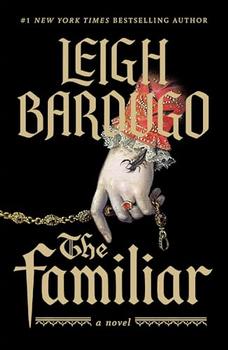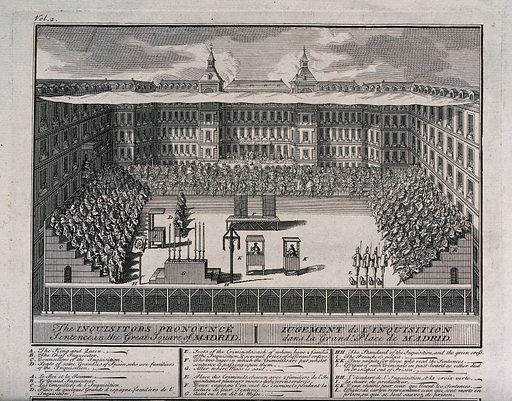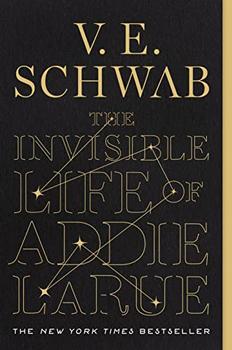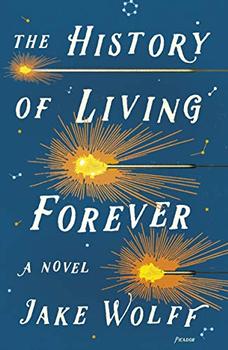Summary | Excerpt | Reading Guide | Discuss | Reviews | Beyond the book | Read-Alikes | Genres & Themes | Author Bio

A Novel
by Leigh BardugoFrom the #1 New York Times bestselling author Leigh Bardugo comes a spellbinding novel set in the Spanish Golden Age.
A MOST ANTICIPATED BOOK OF 2024 by The Washington Post, NPR, Goodreads, LitHub, The Nerd Daily, Paste Magazine, Today.com, and so much more!
In a shabby house, on a shabby street, in the new capital of Madrid, Luzia Cotado uses scraps of magic to get through her days of endless toil as a scullion. But when her scheming mistress discovers the lump of a servant cowering in the kitchen is actually hiding a talent for little miracles, she demands Luzia use those gifts to improve the family's social position.
What begins as simple amusement for the nobility takes a perilous turn when Luzia garners the notice of Antonio Pérez, the disgraced secretary to Spain's king. Still reeling from the defeat of his armada, the king is desperate for any advantage in the war against England's heretic queen―and Pérez will stop at nothing to regain the king's favor.
Determined to seize this one chance to better her fortunes, Luzia plunges into a world of seers and alchemists, holy men and hucksters, where the lines between magic, science, and fraud are never certain. But as her notoriety grows, so does the danger that her Jewish blood will doom her to the Inquisition's wrath. She will have to use every bit of her wit and will to survive―even if that means enlisting the help of Guillén Santángel, an embittered immortal familiar whose own secrets could prove deadly for them both.
Although she appears to be just an ordinary servant, Luzia can perform simple magic — unburning a loaf of bread, fixing torn clothing, turning six eggs into a dozen. She does her best to keep this talent hidden; it's the age of the Spanish Inquisition, and she fears coming to the institution's attention, well aware that her gift would be viewed with mistrust. Bardugo's prose is lovely throughout, with lush descriptions that bring each scene to life. She brilliantly conjures up a sense of magical wonder while casting it against the menacing shadow of the Inquisition. It's this tension that drives the plot and keeps the pages turning...continued
Full Review
(540 words)
This review is available to non-members for a limited time. For full access,
become a member today.
(Reviewed by Kim Kovacs).
 The fictional heroine of Leigh Bardugo's novel The Familiar interacts with several characters based on people who really did live in Spain during the 16th century. One of these is a young woman based on the figure Lucrecia de León, also known as "Lucrecia the Dreamer." Like the main character Luzia, Lucrecia comes under government suspicion for having certain abilities that are not easily explained, a detail that is consistent with the facts of De León's life.
The fictional heroine of Leigh Bardugo's novel The Familiar interacts with several characters based on people who really did live in Spain during the 16th century. One of these is a young woman based on the figure Lucrecia de León, also known as "Lucrecia the Dreamer." Like the main character Luzia, Lucrecia comes under government suspicion for having certain abilities that are not easily explained, a detail that is consistent with the facts of De León's life.
Spain's ruler, Philip II, moved his court and imperial residence to Madrid in 1561, and by the end of the decade the city had become a hotbed of political intrigue. Conspiracies and rumors ran rampant and talk against the king was common. Many felt the monarchy had ...
This "beyond the book" feature is available to non-members for a limited time. Join today for full access.

If you liked The Familiar, try these:

The Invisible Life of Addie LaRue
by Victoria E. Schwab
Published 2023
Winner of the 2020 BookBrowse Fiction Award
In the vein of The Time Traveler's Wife and Life After Life, The Invisible Life of Addie LaRue is New York Times bestselling author V. E. Schwab's genre-defying tour de force.

by Jake Wolff
Published 2020
A chemistry student falls for his teacher and uncovers a centuries-old quest for the Elixir of Life.
No matter how cynical you get, it is impossible to keep up
Click Here to find out who said this, as well as discovering other famous literary quotes!